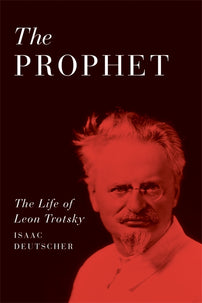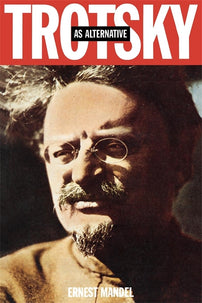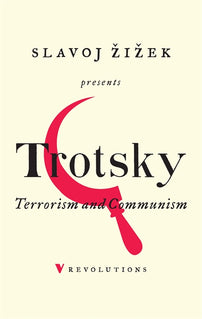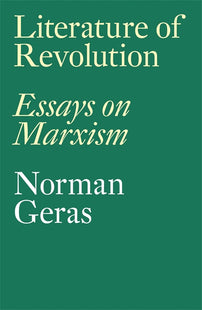Ernst Jünger on Leon Trotsky's My Life
The "revolutionary conservative" writer Ernst Jünger was a regular contributor in the early 1930s to the journal Widerstand – a German National Bolshevik journal fascinated with Stalin’s Soviet Union, which was for them a land of ‘total mobilisation’, ‘planned economy’ and a ‘total state’, where they saw features of an idealised Prussia. In this essay, published in English for the first time, Jünger analyses Leon Trotsky's My Life.

This text, translated here for the first time into English, originally appeared in German in the February 1930 issue of Widerstand, a nationalist periodical edited by the former Social Democrat Ernst Niekisch. Although neither the journal, nor the circle of aesthetes, youth movement leaders and military men that Niekisch drew into its orbit were politically homogeneous, it is fair to say that Widerstand was travelling in the currents of ‘National-Bolshevism’ by this point.
For Niekisch and his friend Ernst Jünger, this implied a real if ambivalent fascination with Stalin’s Soviet Union – for them, a land of ‘total mobilisation’, ‘planned economy’ and a ‘total state’ where they saw features of an idealised, bygone Prussia.
Ernst Jünger – to some a revolutionary conservative, and a champagne fascist to others – had earned literary fame with his World War 1 memoir Storm of Steel in 1920. Now a regular contributor to Widerstand, he penned this review of Trotsky's My Life shortly after it was published in Germany. Jünger’s idealist and nationalist reading of Stalinisation in the Soviet Union is quintessentially conservative: as the Russian Volksgeist (national spirit) reasserts itself, ‘the eternal’ is restored in new form and prevails over the anarchy of transition.
While Jünger’s musings on “powers emerging from the soil” are, mildly speaking, an inadequate explanation of reality, one cannot help but concur with him on one point: the single greatest enemy to Marxists are not “nationalists”, the “petit-bourgeois” or the “stupid”, who so beset Trotsky’s mind, but unforeseen circumstances.
Maciej Zurowski
[book-strip index="1" style="buy"]Trotsky’s Memoirs
Original source: Trotzkis Erinnerungen von Ernst Jünger, Widerstand, 5/2 (1930), pp. 47-51.
1.
The study of these very insightful memoirs, which are available from S. Fischer publishers, will come easiest to anyone who knows how to look through the author’s eyes. Trotsky is a rationalist, albeit a rationalist of the most determined kind, who is by no means content with the order of things as they appear within the limits of knowledge. Rather, he is always ready to realise this order within the realm of Being [diese Ordnung im Sein verwirklichen] – provided the necessary conditions are present, i.e. if he has the power.
It may seem strange to associate this name, which is inseparably linked with one of the greatest processes of destruction in modern history, with the notion of order. And yet, it is justified. Readers who may have certain preconceptions about the nature of the Russian revolution, such as those that are widespread in our country, will be surprised to find a precise mind educated in political economy, western philosophy and the dialectics of class struggle, who in an afternoon discussion probably has engaging things to say about French novels, impressionist painting, and different kinds of duck hunting too.
To learn about the Scythian-barbarian aspect of this revolution, one has to consult other sources. This one mainly comprises its theoretical framework, its method of secret and open preparation, and its organisational principles of seizing and maintaining power. It is no coincidence that it fell to Trotsky to mould the prime instrument of its power, the Red Army, or that the task of scientific rationalisation – above all, the electrification of the armaments industry – was assigned to him when he seemed to become a risky incumbent of his position.
In these roles, he achieved significant feats. Inasmuch as the revolution was a western occurrence, it is fair to say that it was his real element. His star, however, was bound to fade to the extent that the essentially Russian aspect of this phenomenon began to become clearer. Here Trotsky treads on increasingly uncertain ground. His eyes are blind to the powers emerging from the soil, whose onset eludes his calculation. What he sees about them is only their personified aspect – that is, the new men gradually gaining control. He despises them as petit-bourgeois, nationalists, thermidorists and falsifiers of Marxist and Leninist ideas, yet he cannot help being out-manoeuvred in a way that is inexplicable to him.
If Trotsky were a pure theorist, then one might accept the dictum that is the unspoken motto of his memoirs, “against stupidity even gods fight in vain”, as an adequate excuse, albeit only from his own point of view. But since he is also a high-ranking practitioner, the excuse is insufficient: human stupidity, after all, is a certain factor – an important real element that every actor, especially the politician, has to take into account.
But maybe the people around Stalin are not as stupid as Trotsky thinks they are? Perhaps their superiority even consists in being a little less clever than him?
Be that as it may – these memoirs make for an insightful book.
[book-strip index="2" style="buy"]2.
The first part of the book takes us to a curious Europe – those who do not know this Europe, it is fair to say, can only have a partial view of the preparations for the catastrophe.
The dawning of the twentieth century heralds a time that is far from cheerful. The air, already grown oppressive during the past few decades, turns electric. It is not just the World War looming – it is the world revolution too. Both events are essentially two sides of one and the same phenomenon, chaotically interacting in different combinations and interdependent in many respects. One might well say that a great revolution comprising both national and social tensions is in the making – but equally, that a great war is already recruiting its folkish [völkisch] and social armies. It is clear in any case that one day, armed people will trespass the borders drawn by treaties and arrangements not only on the edges of countries, but in the streets of the big cities too. Diplomatic and social conflicts assume a symbolic colouration, and in some records from the period, such as the memoirs of Count Waldersee, the incubus looms ahead in all its gravity.
The magnitude of the catastrophe makes the study of political documents from the period after Bismarck’s dismissal a thrilling pursuit for us survivors. The great diplomatic game of chess, the nets simultaneously spun by many different headquarters, the assurances, reassurances and reinforcements of position – this complex of intricate movements, which resembles a harvest that must be wrapped up before the imminent storm, grows but appears simpler to us in hindsight, for we can already see the thousand-mile front lines smoking on the horizon.
Beside these treaties, alliances, princely visits, table speeches, Moroccan crises and peace summits, however, another kind of diplomacy is underway. Its operations, while arguably more clandestine, are no less significant in their consequences. These operations resemble a document written in an invisible ink that only becomes apparent if you hold the paper over a flame. Here too, small numbers of individuals are involved, and congresses take place in Zurich, London, Paris, Vienna and Berlin. Here too, they gear up for a decisive day, and mobilisation is prepared by other, but no less effective means. Curious characters are at work here: cosmopolitan wanderers, exiles from the first Russian revolution, semi-scholars, and semi-bohemians that you can find at the tables of smoky cafés or in the reading rooms of great libraries year in, year out. Their names are barely known outside small circles – perhaps nobody knows them better than the police, who file them under ‘troublesome aliens’ in their card indexes. More often than not, they cross borders carrying deportation orders rather than passports, accompanied by discreet men in plain clothes. However, they make any new country their home with astonishing ease – they swim, so to speak, in an intellectual layer that runs across all natural global borders.
Upon the first cannon shot, they too disappear into their trenches, ready for battle. They welcome the war too – wherever its devastations are the worst, they will surface first.
[book-strip index="3" style="buy"]3.
Even so, it takes three more years until they can claim the legacy of Tsarism in Russia. The human mind loves to believe in the power of conspiracy – and yet it is very difficult to decide whether these professional revolutionaries were in fact subjects or objects of the revolution. Are they like ravens that always lead lonely lives somewhere, then suddenly flock in from all directions when a carrion is in the fields? Do they resemble bacteria that appear in open wounds and disappear again when the healing power of blood awakens? Do they have a very different, hidden meaning than the one that their own consciousness suggests? Either way, they are there, and their existence is strange enough to be worthy of contemplation.
The revolution owes much to Trotsky, at least so far as its first stage led by western intellects is concerned. The fact that the twentieth century saw the miracle of Valmy repeated multiple times on the frontiers of the Civil War is his achievement. The extent of his personal commitment is exemplary. Moreover, he possesses the rare ability to turn from almost purely dogmatic activity to a practical task in an instant. He built the Red Army not in a manner that might correspond to the theories of Marxism, but in the same way that armies are fixed up through the ages. “So long as those malicious tailless apes that are so proud of their technical achievements – the animals that we call men – will build armies and wage wars, the command will always be obliged to place the soldiers between the possible death in the front and the inevitable one in the rear” (Trotsky). The story of his armoured train, in which he used to travel to the most dangerous locations on the front lines, is a perfect example of modern martial energy and recommended study for any professional soldier.
The removal of this very man, the sheer fact that they could remove him at all, was one of the clearest signs that the revolution had begun to follow different laws, which inevitably found expression in a new ruling caste [Führungsschicht].
[book-strip index="4" style="buy"]4.
Trotsky recounts how long before the war he met a pastor in Zurich, who united within his personality devout Christianity with an extreme socialism: “In his speech, even an armed uprising would become invested with some sort of vapours from another world which produced in me nothing but an uncomfortable shiver. From the very moment that I began to think for myself, I was an intuitive and then a conscious materialist.”
This shiver is a very revealing symptom. Trotsky exists in a very well arranged and coherent kingdom, namely the realm of the intellect. There he has great significance, and his abilities are extraordinary. It stands to reason that a consciousness such as his must encounter a kind of vertigo when all of a sudden a realm following its own, different laws that cannot be captured by the tools of logic opens before him. In this case, it is the Russian realm that suddenly opens like a bottomless abyss under his feet. That is his destiny: the powers of the intellect are defeated by the powers of the soil. And this is the meaning of his book: the intellect tries to prove that the soil was wrong, yet its logic blows over the soil like smoke without leaving a trace.
Yet another remark in this book reveals Trotsky’s innate colour blindness in terms of life’s inherent boundaries very clearly. Trotsky considers it a coincidence that the world revolution was first proclaimed in Russia and not, for instance, in Germany. He thinks that Germany would have given the revolution a much stronger starting position, and that is a compliment that is nice to hear. Without a doubt, the whole Allied world could not have withstood us if we combined the leadership of the World War with world-revolutionary aspiration of the highest order. Whether that would have been possible is an open question. But it is still the case today that national consciousness alone cannot harness the powers necessary for resistance or attack – not unless it allies with a world-revolutionary tendency that elates its own power to the same degree as it paralyses that of its enemy. Trotsky’s book shows unintentionally that Marxism is not up to this task – it is not devoid of logical consequence, but it lacks the deeper, more fertile forces of life. To release these forces and place them at the service of great tasks that we can believe in and fight for with a clear conscience again – that is the secret meaning of the political struggles we have been in for the past ten years and whose end is not yet in sight.
Translation and introduction by Maciej Zurowski
[book-strip index="5" style="buy"]



